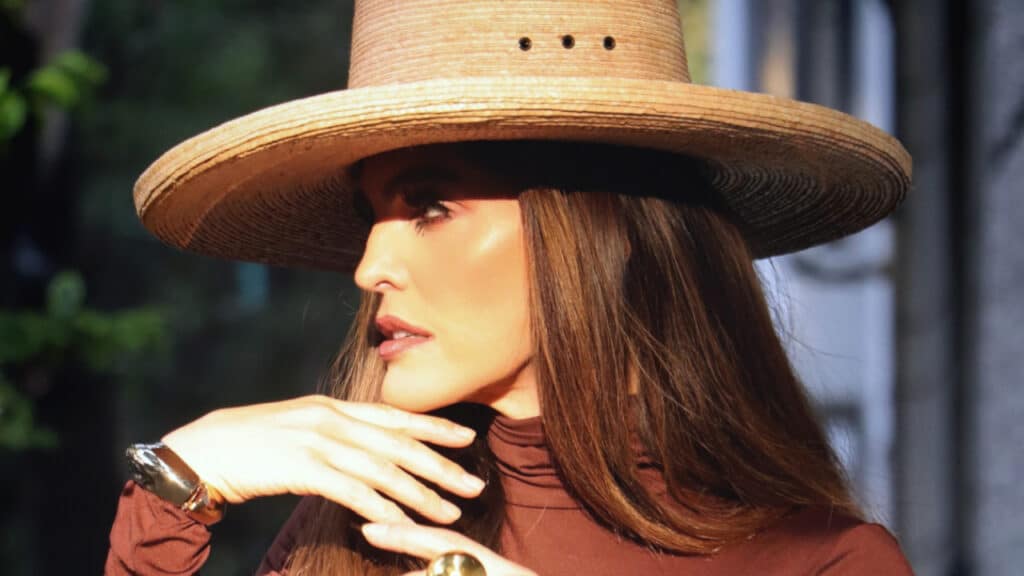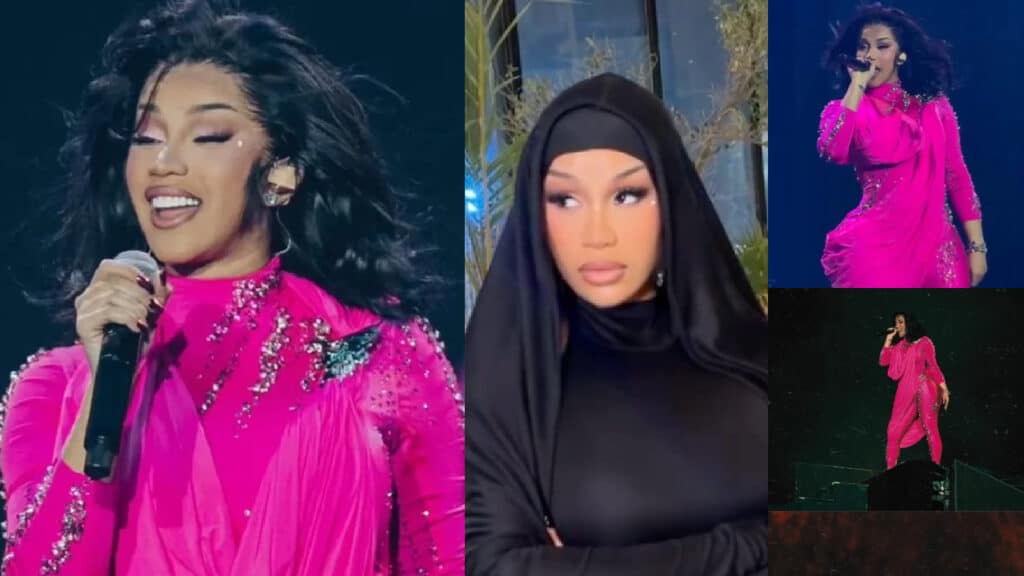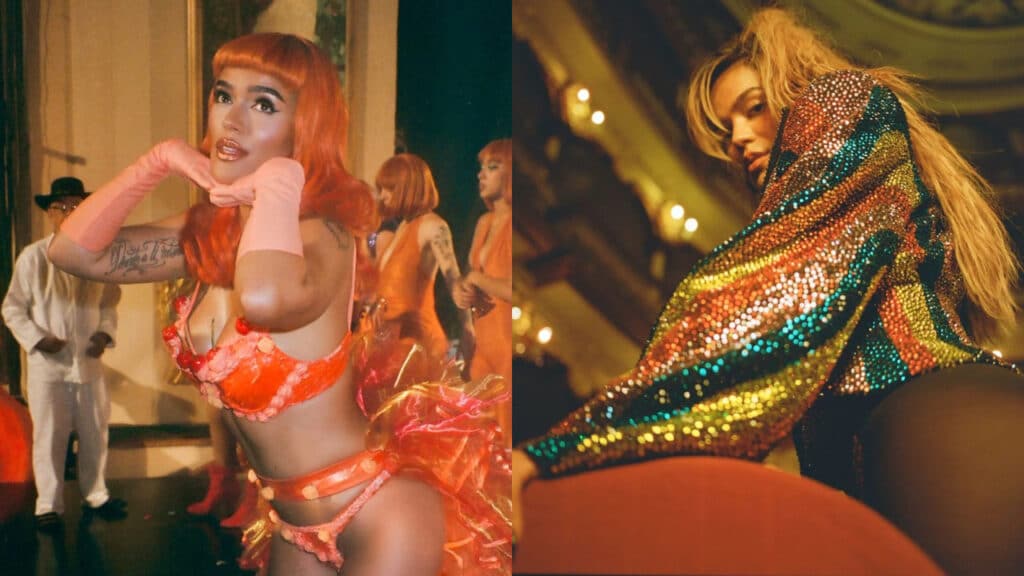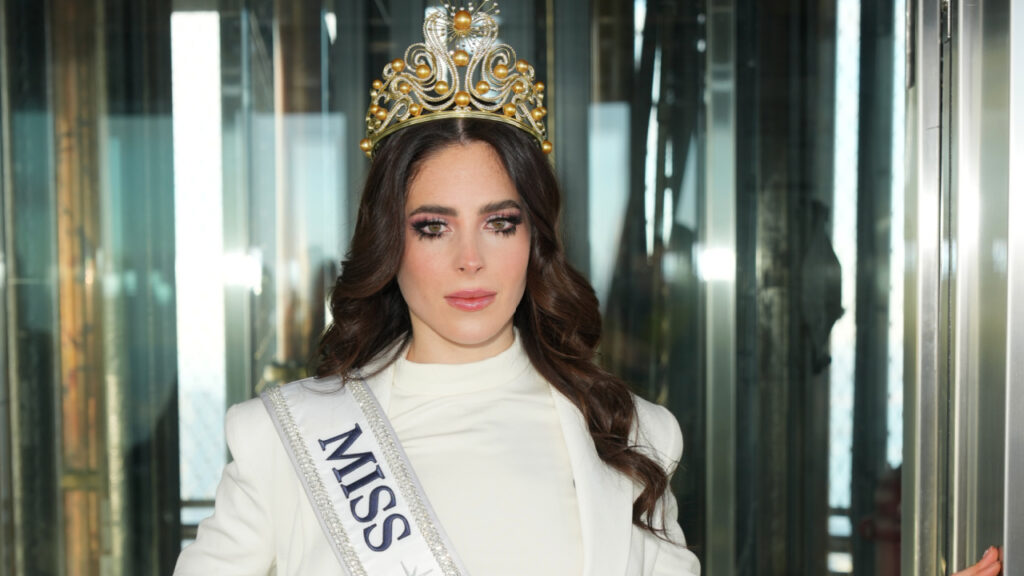Inside the World of Escaramuza Charra: The Latina Athletes Redefining Mexico’s National Sport in the U.S.
Empowerment, skill, and tradition lie at the heart of escaramuza charra, the only women’s event in Mexico’s national sport, charrería. With roots in the Mexican Revolution, this women’s equestrian discipline has slowly found its footing in the US. Today, more than 100 teams are scattered across the country. Among them, Iowa-based Escaramuza Quetzalli stands as an example of the discipline’s steady growth on U.S. soil.
Escaramuza charra is breaking boundaries and shattering stereotypes in charreria
Dating back to the Spanish colonial rule, charrería showcases the equestrian prowess of skilled riders in a multi-activity competition called “charreada.” The sport was traditionally recognized as a male-dominated field, says Quetzalli’s coach, Alexandra Casas. However, over time, charreria has evolved, allowing women to participate. In fact, women’s equestrian skills and influence in the Mexican Revolution have shaped what is now known as escaramuza, charreria’s only women’s event.
As Alexandra explains, escaramuza charra features teams of 8 women riding side-saddle and performing complex choreographies. Translated as “skirmish” in English, escaramuza originates from the maneuvers women soldiers performed on the battlefield. In this fast-paced activity, teams strive to deliver the most synchronized and harmonious moves. “There are eight minds simultaneously in an arena with eight horses reacting to whatever the person is thinking at the moment,” Alexandra tells FIERCE.
Women were first allowed to participate in the charreadas in 1953. The same year, they were granted voting rights in Mexico. It took another 40 years for escaramuza to be recognized as a competitive event. Nowadays, a new generation of women athletes is challenging the world’s perception of charreria as an all-men sport. Refusing to stand on the sidelines, these women are redefining equestrian prowess with grace, strength, and sisterhood. They are also reclaiming women’s place in history and representing Mexican culture beyond the country’s borders.
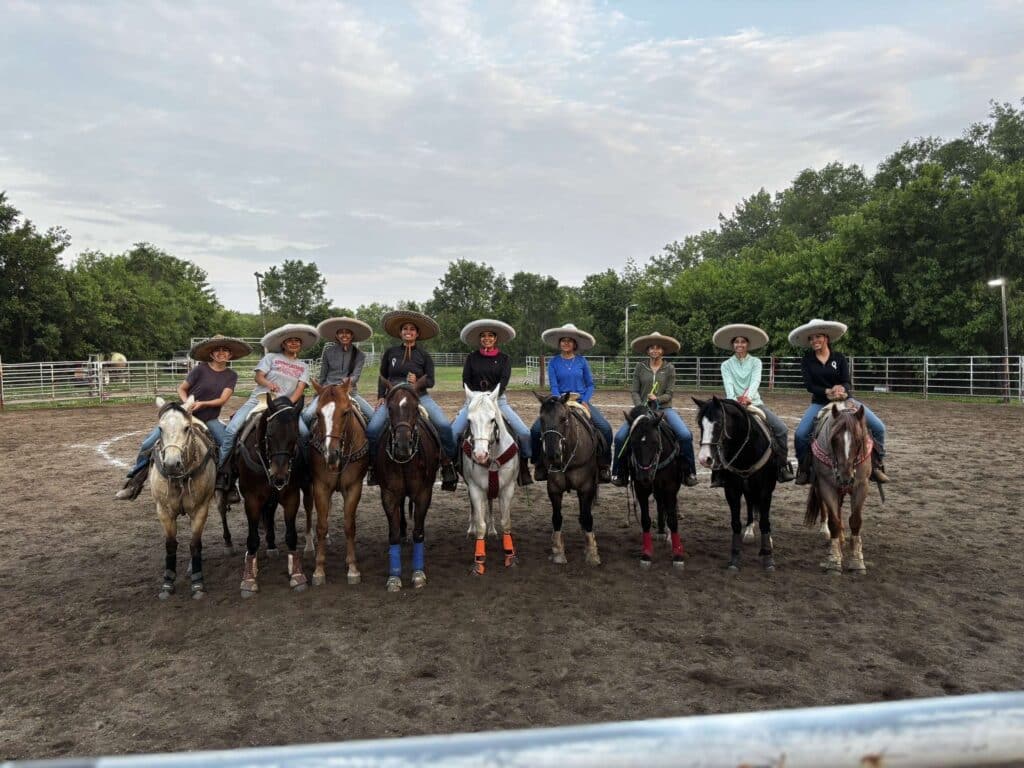
Escaramuza is finding its place in U.S. arenas
In the US, escaramuza charra has found a growing following as women honor their heritage and keep equestrian tradition alive. Escaramuza Quetzalli is such an example. “I wanted to have my own group of girls who would be able to get outside of Iowa and compete,” Alejandra Piña, Quetzalli’s founder, tells FIERCE. “We are in a very conservative, non-minority state. (In Iowa, we have only 7% Hispanic population.) For us, it is very important to go out and demonstrate what Iowa has. When the team started, our focus was to go outside and compete, and at the same time empower ourselves as individuals.”
As a team, Escaramuza Quetzalli has been at the forefront of the discipline’s growth in Iowa. Since 2022, when the team was formed, escaramuza charra has steadily blossomed, as Alejandra explains. “There were a few escaramuza teams (2 or 3), but once we established, [it started growing]. Then another team was founded, and the competition has slowly been progressing.”
While most of Quetzalli’s team members have preexisting ties to charreria, the sport’s interest has also transcended Mexican families. Rachel Jahncke, for example, joined Quetzalli without prior experience or links to Mexico. “When I first joined, I had actually never heard of escaramuza. Anna Garcia, who had connected with the team and was a co-coach, talked to me about it one day,” Rachel shares with FIERCE. “She explained, and I was like, ‘How did I never hear about this?’ I was immediately smitten.”
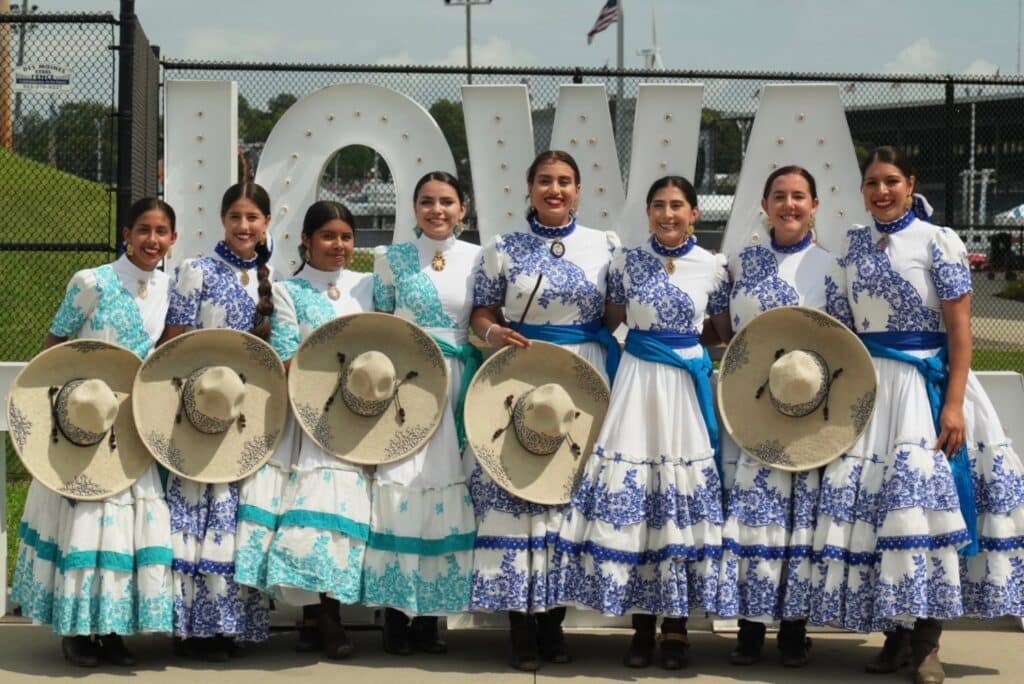
Turning sport into sisterhood
Beyond its clear cultural component, which has allowed team members to connect to their roots, Quetzalli thrives on the sisterhood they have nurtured on and off the arena. The team’s all-female lineup features athletes Dalia Gaytan, Wendy Murillo, Itza Contreras, Jacqueline Romero Martinez, Isabelle Marquez, Michelle Marquez, Lizette Flores, Rachel Jahncke, Yareli Contreras, Jessica Rangel, and Alejandra Piña. Leading them is another group of accomplished women: coach Alexandra Casas, assistant coach Anna Garcia, and team manager Perla Murillo.
Together, they have formed something akin to a family. As various team members emphasize, their bond allows them to show a united front in the arena. “There are many things worthwhile in this sport,” says coach Alexandra. “But what’s most worthwhile is that we see each other as a family.”
The athletes echo the sentiment. “The sport is mentally and physically challenging,” Dalia Gaytan adds. “It’s eight minds. We all have to work it out together. We have to communicate, to be a team and a family and figure out how we’re going to do [things].”
Rachel, who is taking part in an escaramuza team for the first time, agrees. “I think it goes beyond being a team. This is a sisterhood and is something I never really experienced. I think that’s what I like the most about it. It’s welcoming, inclusive, and loving—like a family.”
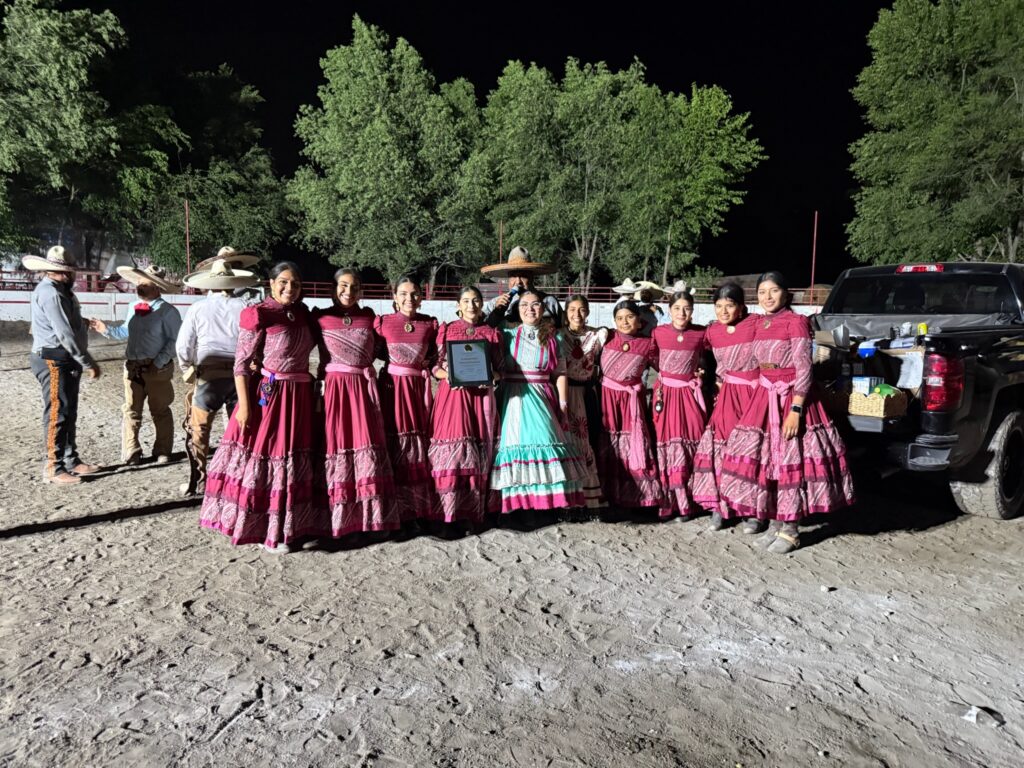
That’s not to say there aren’t challenges
Just like any other competitive sport, practicing escaramuza comes with its own hardships. “A lot of people don’t realize that being part of escaramuza is mentally, physically, and emotionally very demanding,” says Alejandra. As she breaks down, being physically or mentally under-equipped could put teammates at risk or affect the team’s performance. That’s why preparation leading up to state competitions is critical.
“When the time comes, we’re prepping all week. We have boot camps, we have early practices, we have comidas because we have to be at 100% to do a great job at a competition,” shares Alejandra. “For us, competition is the best thing that can happen, and we want to give it all. A lot of people think we get paid to do this. We do not. In fact, we put a lot of our money, time, and effort into it. We put it all.”
But challenges have never held Quetzalli or its members back. Coach Alexandra emphasizes that “they know whatever they want in life is achievable.” Dalia, for example, has been studying and working from a young age. “She had three jobs, which is very respectable, because she did all that to be able to participate in the team,” praises Alexandra. “Wendy goes to Mexico very often for competitions, to show that this US-born girl has all the potential to represent Mexican culture. Alejandra is the state queen; she represents women in Iowa and is the delegate representing the state in Mexico,” she adds.
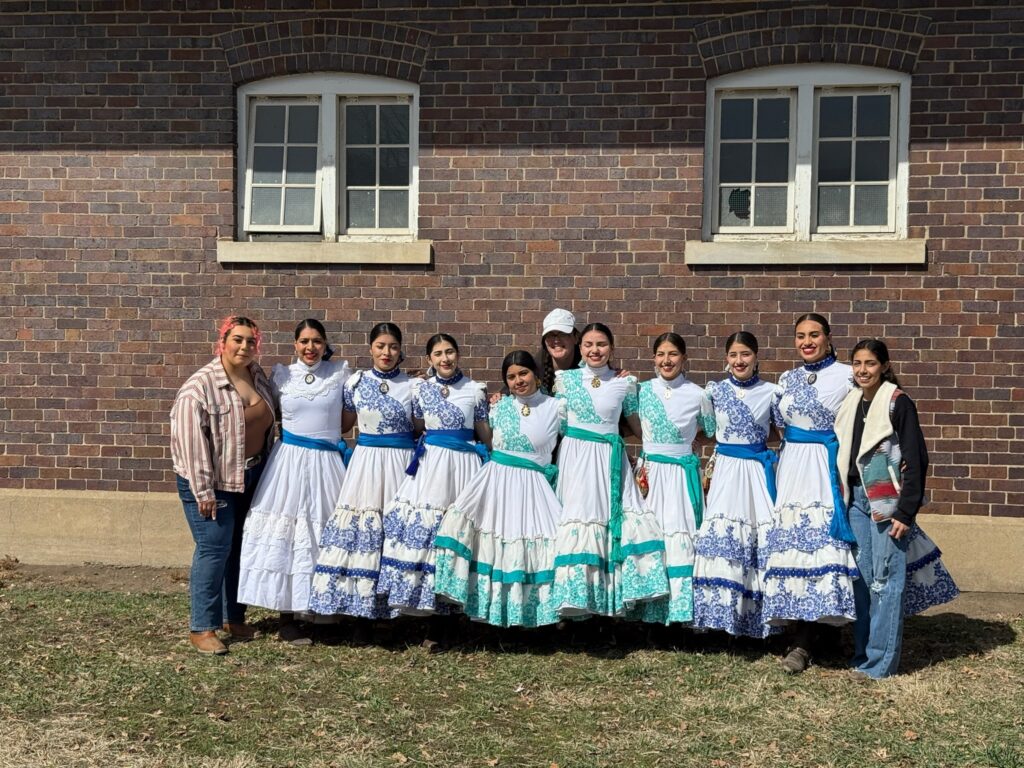
Escaramuza as a reflection of Mexican culture and history
Representing Iowa in a 100% Mexican sport is not a duty Quetzalli takes lightly. The team is well aware of the responsibility it entails. In fact, many of them are following in their parents’ footsteps, perpetuating a family legacy and honoring their culture. Alejandra, Jacqueline, and Dalia, for example, have parents who also practiced charreria or escaramuza.
“I think it’s very important to know what we’re doing is a piece of Mexico that we’re representing,” says Jacqueline. That goes to every aspect of escaramuza, from the performance itself and the outfits—wearable pieces of art and history—to the athletes’ bond with their horses. (As the team stresses, horses are not regarded as tools, but as partners, and receive nothing but the best treatment.) Everything reflects their culture’s values and customs.
“They are proud of their parents’ roots, and when someone like Rachel, who doesn’t have ties to Mexico, arrives, it’s a source of pride for us,” adds coach Alexandra. “The team has already attended a national championship in San Luis Potosí, representing Iowa. Watching them grow, seeing them evolve, and developing into the confident and courageous women they are is something I love.”
Quetzalli’s growth and the rise of escaramuza charra in the US reflect the Mexican diaspora’s commitment to keeping traditions and heritage alive. More than a sport, this equestrian discipline stands as a piece of Mexican history that celebrates women’s strength, grace, and determination. And, as coach Alexandra underscores, it is a part of Mexican culture they will guard zealously.
“Even if it’s the last thing we do in this world, we will defend our sport, our history, traditions, and uniforms.”

